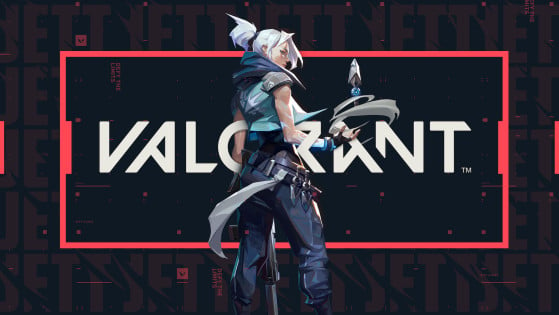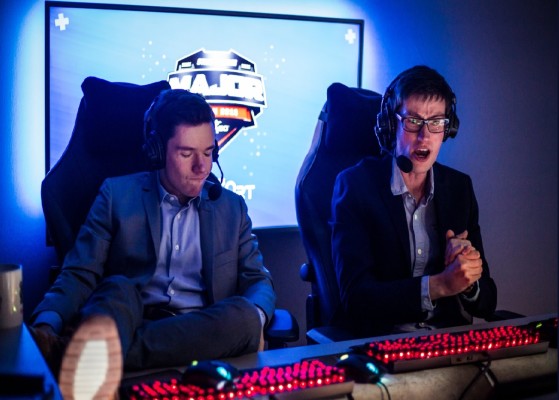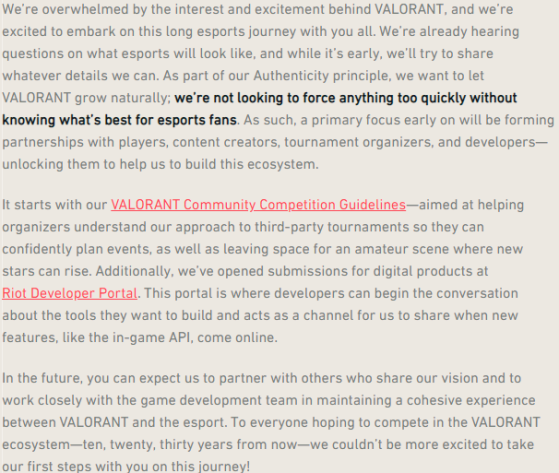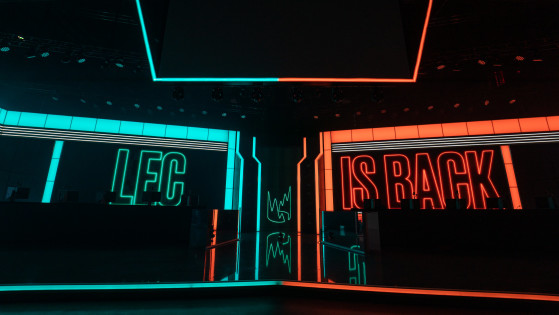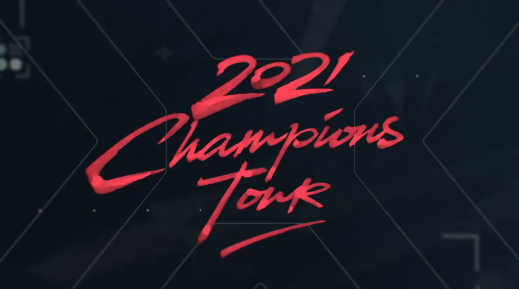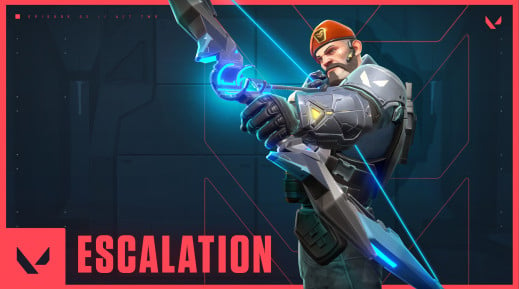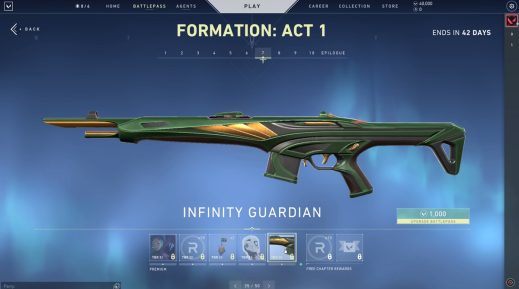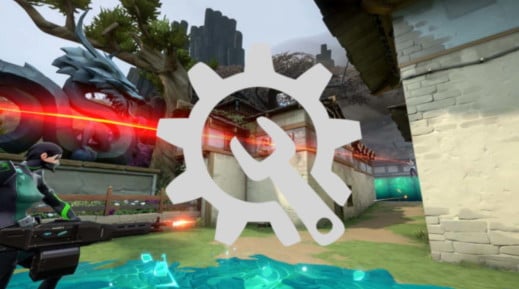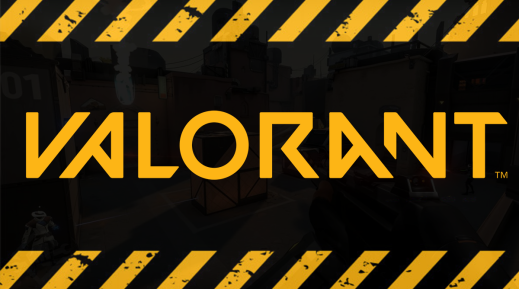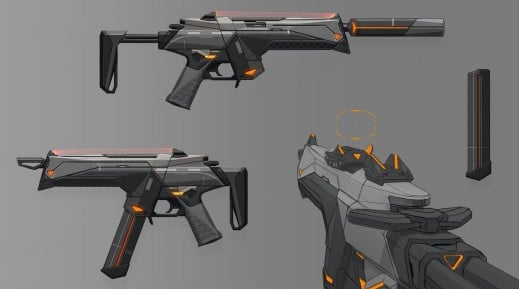With all this hype, it's hard to ignore the fact that the majority of potential players are still waiting for the full release of Riot Games' new FPS, scheduled for this summer. However, the community and professionals didn't wait to look to the future of the game. Is it the "CS killer" as has been mentioned? Is it "esports ready" as is?
Riot Games' approach to the development of Valorant has been unique, and decisive for its future. During our interview, Arthur "pm" Guillermet — commentator for French CS:GO-specialist website 1PV — explained:
"Riot Games' biggest innovation here is that from the very beginning of its development, Valorant was designed for the competitive scene. For other developers, an esports scene is always accidental, and happens as a consequence. Here, for the first time, we have devs who understood and integrated this competitive dimension to the development".
With the information we have, we know that the first public signs of the development of Valorant were six years ago, and that Riot Games has put together a strong team aiming to create the best possible tactical FPS. We're talking about names like Trevor Romleski, Senior Lead Designer on Valorant, having worked for nine years on League of Legends, or Salvatore Garozzo (aka Volcano), a former CS pro player and the designer of Cache in Valve's FPS.
It's clear that it is Riot Games' touch that is being put forward. I'm obviously talking about Riot as Kakashi, copycat ninja of the esports world (a wonderful comparison found by the great Tweekz). But in the end, he's a copycat ninja who listens to players, something other publishers have been criticized for in the past.
On this subject, Guillermet wonders why Valve didn't have this ambition with CS in 2012; to make a game that was a hit and make it the best possible title.
"They missed the boat, and that's where the competition comes in".
Here, the competition hits hard, and timing has a lot to do with it. Valorant arrives in the midst of an empty schedule, and without a healthy Fortnite or Apex to stand in its way:
"I was expecting such a good start, even before I got my hands on the game," says Guillermet. "If you put the drop system aside, I think there's player weariness in other games, and that contributed to Valorant's debut on Twitch."
We're talking about more than 1.7 million viewers on Twitch within hours of launch — that's the third biggest peak ever on the platform, breaking last year's Fortnite World Cup record.
This start is obviously a good way for Riot to gauge the situation. The game is good and it's enjoyable, there's no denying that. But when you're competing in such a niche genre that's not as accessible to the general public as the tactical FPS, we have to ask questions about the future success of that game.
Valorant seemingly has everything to be successful. A modern style and charismatic agents with highly unique kits. Clear and precise menus, combined with a client which guides the player step by step. As a novice and beginner in the tactical FPS genre, I felt like everything was explained to me. The game is demanding, but the keys to understanding are not so difficult to grasp, even in the first few games.
As for regulars of Counter-Strike, "this is a casualized CS which is not a casual game," says Guillermet. "It's a good game, there's freshness, and there are less draining mechanics."
This last point puzzled me a lot. What makes it less draining?
"You have a 30-second freeze time before the start of the round, whereas in CS it's usually 15 seconds. So you have to act quickly and everything goes very fast.
"You don't realize it, but the thirty seconds to settle down is a mechanism that makes the game less tiring. In CS, the rhythm was set empirically. In Valorant, it's part of the dynamics of the game."
Apart from this technical aspect, Guillermet also explains that what makes the game more interesting is its user-friendly design.
"It's a 2020 game, that's clear. You don't have any commands to enter, and as a beginner you're taken by the hand. You also won't have — for the moment — too many cheaters, as is the case in CS."
The problem of cheaters has been much discussed and clearly taken into account by Riot Games, who, unlike Valve, have been able to prevent this problem in the design of the game.
At least, that was the case until the launch of the ranked queue...
As for the long-term nature of the game, Guillermet makes another important point.
"We've said it over and over again — it's not going to be a casual game, and that's something Riot will have to take into account over time. Valorant has to become part of gamers' DNA.
"Today, everyone knows CS, everyone has played CS, but no one plays the game anymore. It's hard to get into, and it requires a 100% tryhard spirit. It will be interesting to see how Riot develops Valorant so that the players stay.
"In CS, the sale of skins has had an impact on player retention. There's a real marketplace underneath the game. They are collectors and gamblers, but it's also a condition for a lot of players. Riot's ethics and approach is against all that, but how will they manage to score?"
So we're talking about anything that could be 'fun' aside from the competitive 5v5 aspect of Valorant. For now, the game is as it is, and we'll see the direction Riot takes over time. More importantly, depending on the feedback from the players themselves.
Just weeks after the beta was launched, Riot sketched out their plans for future competition, saying they don't intend to take it on straight away.
Once again, the goal is to gauge the community, see what people like and what they want, with the endgame probably being to eventually take back control — just like what was done with League of Legends.
On this point, Guillermet says that this is the right approach.
"A game doesn't become an esport because you ask it to be. Today there are esports artifacts, and it's clear why these made-up constructions do not work".
Event creation is one thing, but what about professional players? While the game is still only in beta, we have already seen organizations signing players and announcing teams — despite the ranked ladder having just been released.
"All this movement is esportainment," says Guillermet. "It's contributing once again to what Riot is trying to do, by creating discussion, excitement and community involvement. We're talking about professional players — which is a sacred word for esport fans — with no real scene behind it, That doesn't shock me."
While many players — from Overwatch in particular — are announcing that they are leaving the scene to devote themselves to Valorant, it is difficult to know which pro players will succeed in breaking through in the long term.
One who has made the biggest impression is Jay "Sinatraa" Won, Overwatch League MVP and a highly respected player in the scene. Most prodigies are still unknown to us in Valorant, and only the ladder and time will reveal them.
What does the future hold for Valorant? It's certainly bright, there's no doubt about that. Guillermet sees a coexistence between CS and Valorant in the esports scene, as we have seen between League of Legends and Dota 2 for years. But in itself, these are only guesses.
The next six months will be decisive for the future of the game, both in terms of the approach Riot will take, and in this famous secret recipe — the impalpable element that defines whether a game works or not.
On this point, other than letting the players and time do the talking, Riot Games can't do much just yet. So, we'll need to wait and see if this titan built for players will meet expectations and make players thrill.
